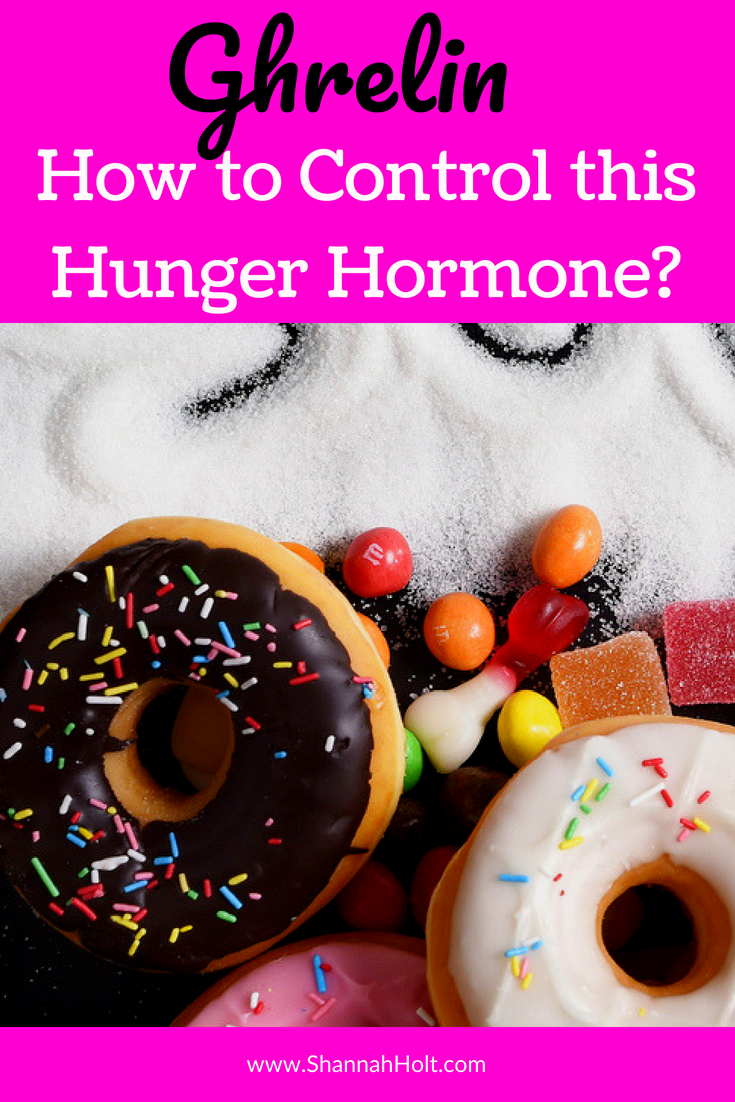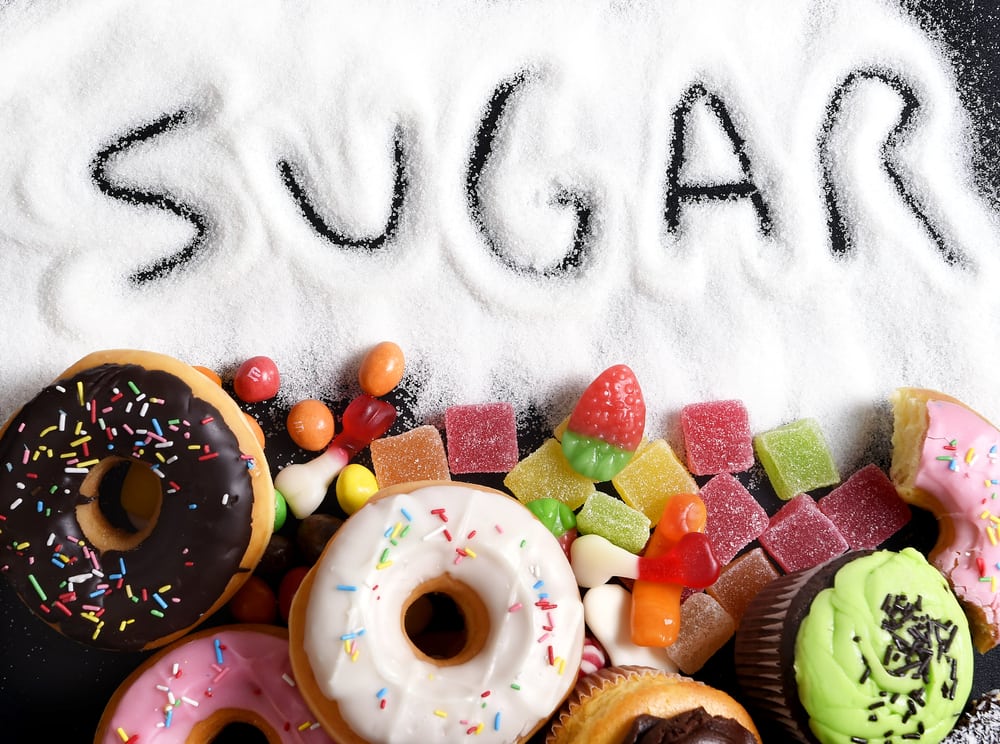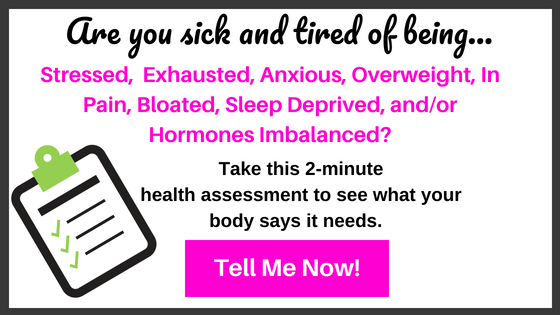Ghrelin How to Control this Hunger Hormone?

Some of the links in my blogs may be affiliate links. See my disclaimer page for more information.
Did you know that we have hunger hormones? One is to increase our appetite and make us eat called Ghrelin. You would have heard it grumbling in your belly a time or two.
Another hormone primarily works to decrease our appetite and it is called Leptin. I don’t know about you, but I would like to be ‘ordering’ a few more of those. I will be talking more about Leptin in my next blog post. Today will be all about Ghrelin.
If you have not heard of these before that is ok, the majority of us would have never even heard of these little ‘critters’. I’m going to give you the rundown and better understanding of your body’s hunger hormones so that you can better manage your weight loss.
What is Ghrelin?
Ghrelin is a hormone that increases your appetite. It is a 28-amino acid hunger-stimulating hormone and peptide. Ghrelin is released in the stomach and has the task of sending signals to your brain so that you can recognize you are hungry.
The levels of ghrelin decrease after eating and increase before meals. Even though it has various functions within the body, it has been isolated and recognized as the first circulating hunger hormone. Studies show that ghrelin increases fat mass and food intake by an action that occurs in the hypothalamus within the brain.
The body produces more ghrelin if a person is not eating enough. Therefore, skipping meals equals more ghrelin. However, ghrelin in normal circumstances is reduced if the individual is eating too much. So after you have had dinner it stops telling your brain to eat.

Studies have shown that levels of ghrelin increase in individuals who are suffering from anorexia nervosa. Also, ghrelin levels decrease in obese children. There are some bariatric operations to treat obesity in which the level of ghrelin is reduced in patients. This helps to cause a feeling of fullness before it would naturally kick in.
According to a study conducted in Germany, ghrelin may play a huge role in determining the length of time that “hunger” will be felt by a person. Normally, ghrelin levels dramatically increase when a person is hungry and eventually subside after having a meal. Researchers also found that the role of ghrelin is not only limited to increase appetite. The hormone additionally regulates an individual’s body weight.
Ghrelin May Dictate Food Choices
Studies indicate that having high levels of ghrelin can make junk-food and high-calorie snacks seem more appealing. This may be why we choose chocolate or cake over the refrigerator full of fruits and vegetables, more so when we are hungrier. The effect of this hormone is so strong that it mimics a fasting state within the body. So, you are not crazy when you feel you have to have that piece of chocolate.
The brain responds with a mild panic response, causing it to target high-energy foods, like sugary treats. These are normally the food types which provide more energy then being readily used by the body and are quickly stored as fat.
This is why there is an increased appetite for high-calorie foods rather than low-calorie foods. Studies have shown that the brain’s reward system becomes more active in patients who were administered ghrelin as compared to those who were not.

Steps To Keeping the Ghrelin ‘Gremlin’ Controlled
#1 Eating throughout the day
The best way to be proactive with your hunger is to eat small meals throughout the day. If you are having something every 2 to 3 hours, you won’t have a chance to become ravenous and start looking for that quick fix.
By keeping your body eating on a regular basis, the ghrelin levels will not take over and make you want to eat huge amounts of high-calorie foods. Consuming some protein with every meal will also enable you to stay satisfied longer and help assist with weight control.
#2 Keeping your ghrelin levels in check
We have all experienced a growling stomach prior to mealtime. When our stomach is empty, the hormone ghrelin is released. This signals to the body that it is hungry and that it is time to eat.
In order to keep our hunger levels in check, it is important to keep our ghrelin levels low during the day. There are a variety of factors that come into play which can inadvertently raise our ghrelin levels. For example, consuming high-fat, greasy foods, drinking alcohol, eating too many sweets, or not consuming enough calories can adversely affect the correct brain and body response to our hunger hormones.

Photo by Brooke Lark on Unsplash
#3 Eating breakfast
I’m sure you have heard at some point in your life that breakfast is the most important meal of the day and it is said so often because it is true! You have been asleep for hours so your body has not had food in quite awhile. Your gut is sending out those ghrelin hormones to tell your brain to eat.
Eating breakfast will help regulate our metabolism through our hormones. If you go on with your day without eating it will only make things worse later that day.
Studies show that individuals who enjoyed a higher-calorie breakfast ended up producing approximately 33% less ghrelin during the day and also felt satisfied for a longer period of time.
There is a saying that you can keep in mind for eating your meals. Eat breakfast like a King, lunch like a prince, and dinner like a pauper. So to keep the hunger hormones from taking over make sure you are getting in a substantial breakfast. Just coffee and a donut will not work.
#4 Keeping insulin levels balanced
Insulin levels rise after eating and ghrelin levels decrease. Insulin levels and ghrelin work together, so it is wise to choose complex carbohydrates over simple carbs. This means eating vegetables instead of donuts. This ensures that you will get a more nutritional benefit and feel fuller longer.
If however, you consume simple carbohydrates, such as white pasta, white bread or other refined carbs, your blood sugar levels dramatically rise. When this occurs, the body responds by releasing a surge of insulin to protect you from the excess sugar in the bloodstream.
Once the insulin has efficiently stored the excess (as body fat), low blood sugar re-occurs. This triggers your hunger hormones once again and becomes a vicious cycle in your body.
Your metabolism can greatly suffer from numerous blood sugar swings from high to low as well. You will feel exhausted! This is one of the main reasons it is vital to consume complex carbohydrates, protein, and fiber. By keeping insulin levels stable, you delay the release of sugar into the bloodstream. This process allows the body to feel full longer.
Healthy Eating Tips to Lower Ghrelin Levels
Within our body, ghrelin levels remain elevated until food stretches the stomach wall and initiates a feeling of fullness. There are a few ways you can keep your ghrelin levels lowered.
High Volume/ Low-Calorie Foods
By choosing high-volume foods that are low-calorie, you can help reduce your ghrelin levels before overeating. Soups, salads, veggies, watermelon and any foods with high water content are great high-volume, low-calorie choices options.
Timed Eating
Irregular meal times will also cause ghrelin highs and lows. If we make sure to follow a schedule for meals, spikes in ghrelin can be reduced.
If mealtimes are not controlled by you, try keeping a bag of nuts such as almonds in your car, purse or gym bag to get you by when you are out and about. This will help keep you satisfied until you can return home and enjoy a proper meal.
Protein
Choosing protein-rich foods during these times additionally helps keep your ghrelin gremlin in check. This is due to the long-lasting feeling of fullness that protein provides. An easy snack on the go is to add a protein powder to a smoothie or shake. Keep these two things in mind.
#1 Make sure your smoothie is a healthy one and not a sugar-laden smoothie that you want to think is healthy! Keep fruit juice, ice cream, or other added sugars out of your shake or smoothie.
#2 Research the ingredients in the protein powder before you put it in your body. There are so many on the market today with added fillers, toxins, and artificial ingredients. This will not only be the opposite of what you are trying to achieve but will mess up other body systems as well like your gut.
If you would like an all plant-based protein without any fillers or artificial ingredients I have a wonderful recommendation. It is called SolleComplete and you can take a peek at it here, click on the LIFT tab and you won’t have to scroll so far: SolleComplete
This is not just your ordinary protein shake either. Its special blends help the body increase stamina and elevate mood; soothe the digestive tract and increase bioavailability.
Now it is your turn…
Let’s take back control of your hunger hormones so that you can get the success you are looking for in your weight loss journey. Stay tuned for the rest in this series on Hunger Hormones with tips on appetite, metabolism, weight loss and more. When they are available they will be linked at the bottom of this blog post. If you would like to be notified when it comes out just sign up to get notified by email!
In the meantime, if you are looking for more tips, resources, and support in your wellness to weight loss journey I have an online community you are welcome to join called Journey in Wellness. You will also be emailed some extra free resources this week for joining.
I usually always take my blogs live on Facebook first. Feel free to follow me on my business page here: Coach Shannah Holt
Here is the recording of this blog on Facebook Live.









Great information and awesome research! I was unfamiliar with ghrelin before.
Great tips on how to control the hunger hormone! I th ou nk they are easy to follow which is great!
Great tips! I am definitely someone who needs to stay on top of this, because my insulin can go all wonky if I don’t pay attention, and then I want ALL the sugary treats!
Wow, this was really educational and eye opening! I really need to start eating every 2-3 hours. Thank you for sharing!
I am diabetic so that means I am always hungry. My doctor suggested having 6 small meals throughout the day. She does not want to restrict my intake of sugary sweets because the craving would be so bad that if I get the chance to have some, it would be over-indulging. Anything in moderation is the key. Thank you for the information about this hunger hormone. It was a good, informative read for me today.
This is so interesting! I had no idea that our hunger was influenced by a hormone. I’ve actually been trying recently to eat more small meals/snacks throughout the day so that I don’t get starving and make unhealthy choices, and I’ve definitely been seeing progress!
These are great tips for controlling your hunger!
I had no idea there was a name for hunger hormones. It’s so fascinating, and something to be mindful of when choosing what and when you eat.